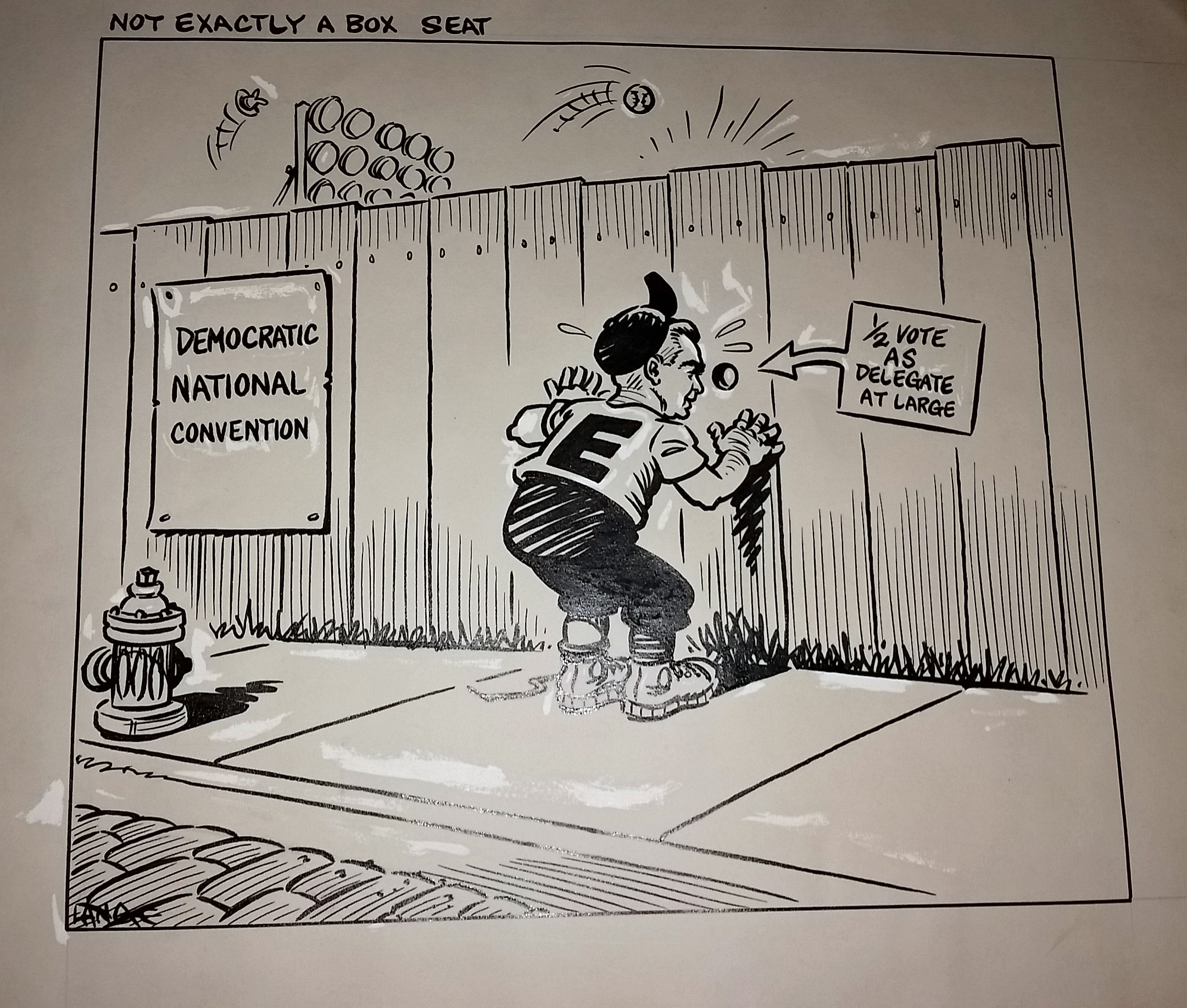|
Moderated by NW Okie! |
Volume 16 , Issue 342014Weekly eZine: (366 subscribers)Subscribe | Unsubscribe Using Desktop... |
1959 thru 1960's Democratic Politics

Once again we continue with the early 1960's Democratic Politics in Oklahoma and the seriousness of the split in the Demcrats of Oklahoma from September, 1959. My Father, Gene McGill, was beginning his run as the State's Chairman of the Democratic party around that time.
"The seriousness of the split in the Democrats of Oklahoma became known in September, 1959, when the Democratic state executive committee ignored the governor's wishes in deleting a new Democratic state chairman following Loyd Benefield's resignation. Edmondson let it be known that his choice for state chairman was Pat Malloy of Tulsa. But, the committee chose an avowed opponent of the governor's three initiative petitions, Gene McGill of Alva." (See Oklahoma City Times, 19 January 1960.)
After that, Governor J. Howard Edmondson had no control over the Democratic party organization from then on, and neither did Edmondson control the Democratic state convention which selected delegates to the Democratic National Convention in 1960. My Father, Gene McGill headed the delegation, and Edmondson was placed on the delegation and given a one-half vote because of his position. Edmondson was unable to control the organization of the state legislature for the 1961 session, though under terms of a compromise he was allowed to designate the majority floor leader of the house of representatives.
The three initiative measures voted upon in September, 1960, and all were defeat by heavy margins. It was thought of to be a tactical error to submit those three controversial measures on the same ballot, because it apparently had the effect of solidifying all possible elements of rural opposition to the measures. Rural leaders formed a statewide organization, Oklahoma for Local Government, to fight them and this organization had the active support of the rural legislators and county commissioners.
My Father, Gene McGill, sent a letter to the Democratic county officials asking them to get out the vote to defeat the measures. (story in the Daily Oklahoman, 8 September 1960.) As the result showed, only three urban counties, Oklahoma, Tulsa and Washington returned majorities for the three proposals. One of the three measures, to permit changing the system of spending county road funds, but it was defeated 353,446 to 183,173. The other two proposals were comparable to that measure mentioned.
The state Democratic party's image was shaken in 1961 by the lengthy, wrangling of the 1961 legislative session, which could be described as the longest, costliest, most wearisome and frustrating session in the history of the state.
In 1962, Henry Bellmon ran for Governor on the Republican ticket against the Democratic candidate W.P. Bill Atkinson. Many Oklahomans took into account when the Democratic gubernatorial nominee recommended in 1962 that the sales tax be increased. As the 1962 elections approached, relations were strained between the urban and rural wings of the Democratic party, as well as between the legislative, executive elements of its leadership and between the governor and official party organization. Many were thinking that there was sufficient cause to think it was time for a change.
Democratic first primary candidates and their total votes for 1962 governor were:
- Raymond Gary, 176,525;
- W.P. Bill Atkinson, 91,182;
- Preston J. Moore, 85,248;
- George Nigh, 84,404;
- Fred R. Harris, 78,476;
- George Miskovsky, 9,434;
- William A. Burkhart, 4,055;
- Max B. Martin, 1,199;
- Thomas Dee Frasier, 1,123;
- Harry R. Moss, 1,101;
- Paul J. Summers, 987;
- Ben Elmo Newcomer, 564.
Three candidates withdrew from the contest, but their withdrawals were made too late to have their names taken off the ballot. Frasier withdrew and announced his support of Harris. Summers and Moss gave their support to Moore.
There was speculation that Gary and Atkinson would be competing for the anti-Edmondson, largely rural, generally status quo vote and that Moore, Nigh and Harris would seek to establish themselves as the "fresh political face." It was an effort to capture the vote that went to Edmondson in 1958. Gary and Atkinson were expected to project the image of stability, and the younger trio would appeal to the urban-progressive elements of the electorate. It helped to some extent, until Atkinson changed his appeal from that of 1958, and took a forthright stand on the issues, appealed to the urban-progressive elements of the electorate while retaining his image as a sound businessman, as he dissociated himself more and more from Gary.
Gary's position was also most distinctive, with a platform that was even more rural-oriented than his 1954 platform, Gary emerged as the champion of the rural, anti-Edmondson elements of the electorate. The substantial overlapping of support for Moore, Nigh and Harris hurt the candidacy of each, though. Gary's popularity began to rise in the state in 1959 and 1960 as Edmonson's popularity fell. | View or Add Comments (0 Comments) | Receive updates ( subscribers) | Unsubscribe
| © . Linda Mcgill Wagner - began © 1999 Contact Me | |
